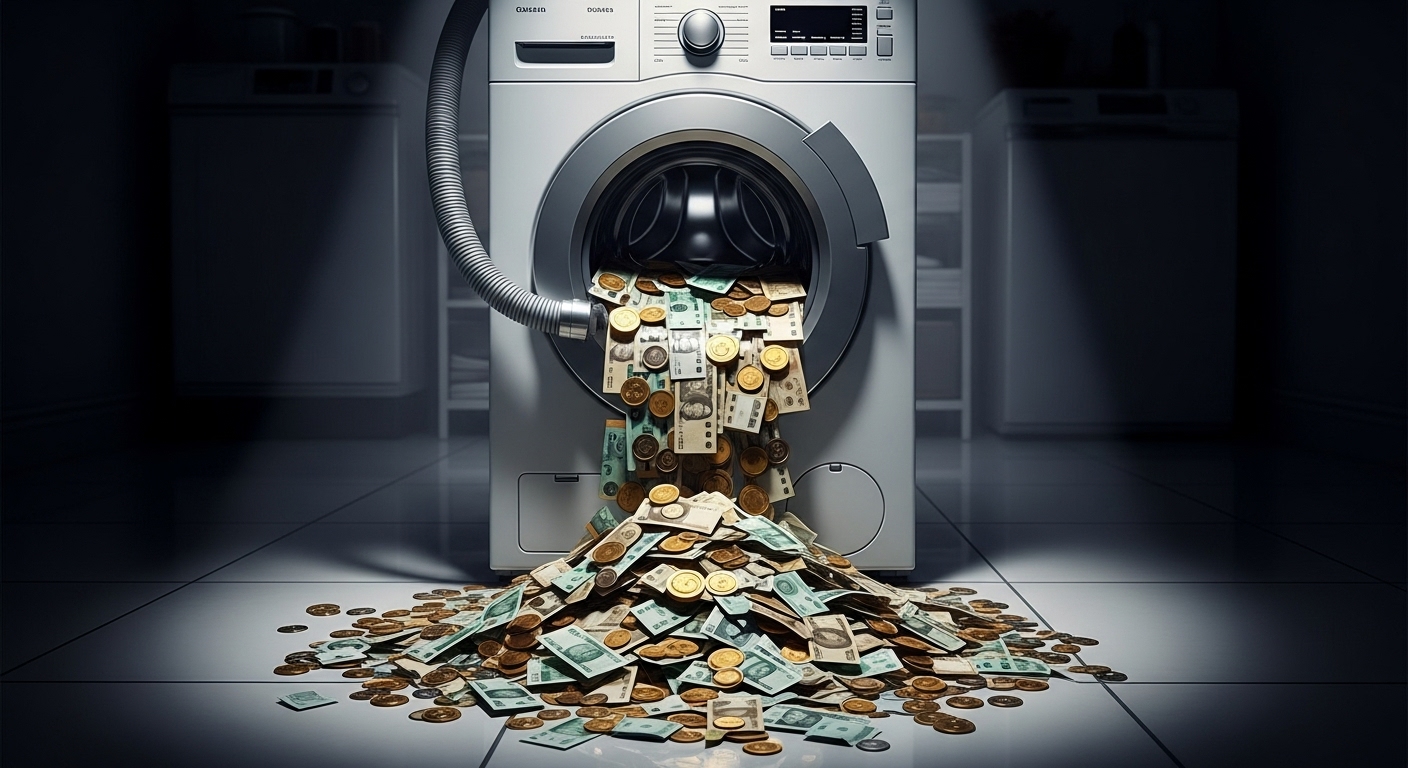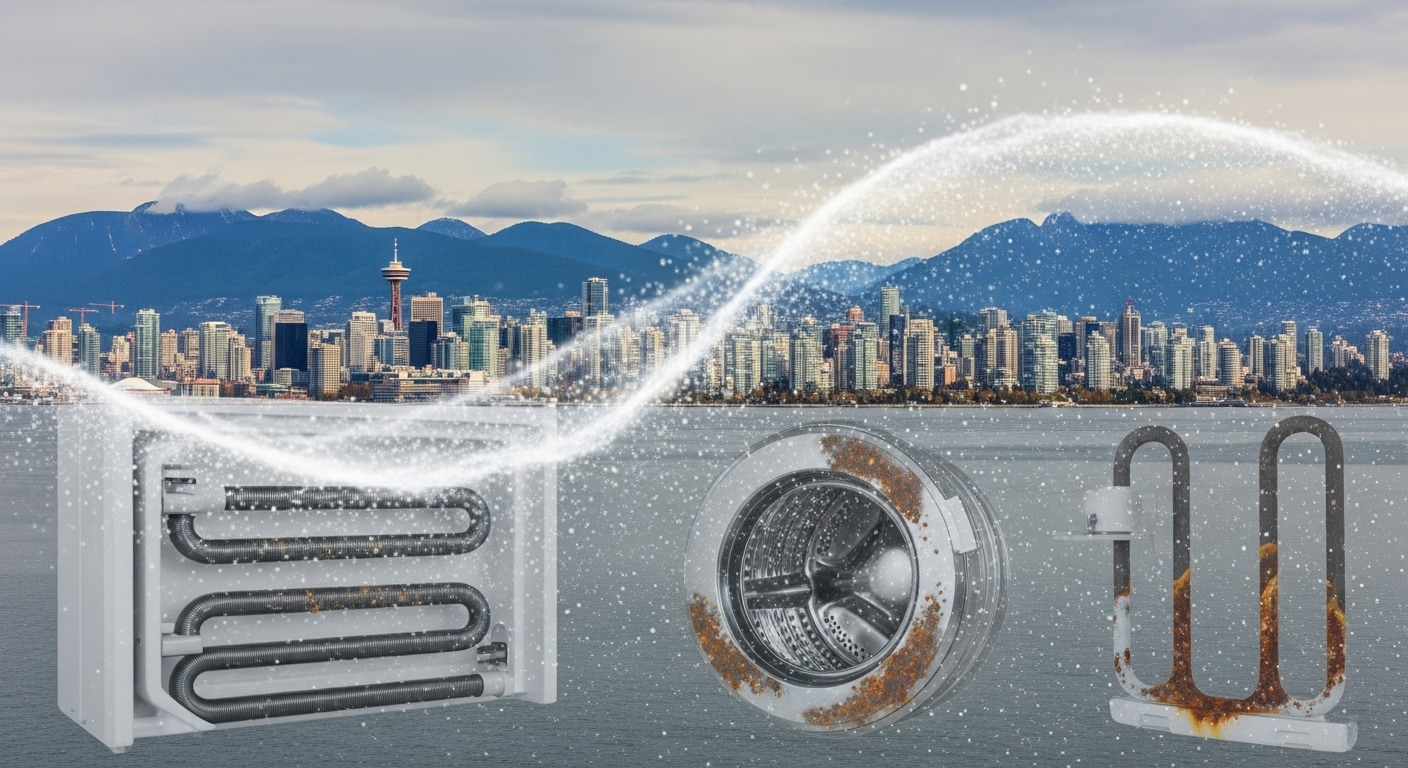Vancouver’s Airbnb Host Crisis: How Short-Term Rental Turnovers Are Destroying Your Appliances Faster Than Expected (Plus the Quick Maintenance Checks That Keep Your Property Profitable)
Dealing with Vancouver’s short-term rental appliance crisis that’s costing hosts thousands in emergency repairs? Discover how coastal climate conditions and high turnover rates are systematically destroying your appliances while you sleep, plus the proven maintenance strategies that can slash repair costs by up to 85%.
Last month, I received a frantic message from a property owner in Yaletown whose brand-new stainless steel refrigerator had completely died during the summer tourist rush. Three Airbnb guests, spoiled groceries everywhere, and a repair bill that hit $847 before they even ordered the parts. The kicker? This same scenario had played out six months earlier with their washing machine. As someone who’s spent years helping Vancouver property owners navigate the reality of coastal rental property challenges, I can tell you this story isn’t unique—it’s practically inevitable when you don’t understand how our city’s environment accelerates appliance failure.

Here’s what most Vancouver rental property owners don’t realize: our gorgeous marine climate is basically appliance kryptonite. That salty ocean breeze that makes our sunsets Instagram-worthy is simultaneously corroding every metal component in your rental units. The humidity that keeps our gardens lush year-round is creating perfect breeding grounds for mold in your washing machines. Those mild temperature swings that let us skip heavy jackets most days are constantly expanding and contracting every gasket and seal in your appliances until they crack under pressure.
Vancouver’s rental market presents a perfect storm of appliance-destroying conditions that standard maintenance approaches simply can’t handle. We’re dealing with coastal salt air that penetrates indoor environments, humidity levels that encourage rapid component deterioration, and a rental turnover rate averaging 47.5% that subjects appliances to constant use variations and handling inconsistencies. Add in the legal requirements under BC’s Residential Tenancy Act that make landlords responsible for all included appliances, and you’ve got a situation where ignorance literally costs thousands annually.
Key Outtakes:
- Vancouver’s coastal climate reduces appliance lifespans by 20-30% compared to interior locations, making proactive maintenance essential for rental properties
- Emergency appliance repairs during peak seasons can cost $500-800 before parts, making preventive care a critical investment
- Proper preventive maintenance can extend appliance lifespan by 40-50% while preventing 85% of common failures in rental properties
- The average rental turnover rate of 47.5% combined with tenant appliance misuse creates accelerated wear that requires specialized management strategies
- Legal compliance under BC’s Residential Tenancy Act makes landlords responsible for maintaining all included appliances throughout tenancy terms

The Hidden Financial Impact of Vancouver’s Appliance Overuse Crisis

Understanding the true financial impact of Vancouver’s appliance crisis requires looking beyond simple repair costs to the comprehensive damage that affects your rental business. The numbers don’t lie, and they’re uglier than most property owners want to admit. Vancouver rental properties are experiencing appliance failures at rates that would make interior property owners weep. We’re not just talking about minor inconveniences—we’re talking about systematic financial hemorrhaging that’s completely preventable with the right approach.
Front-loading washers, those sleek European-style machines that tenants love and landlords install for their efficiency, are getting absolutely destroyed in Vancouver’s rental market. Where you’d normally expect 10-15 years of reliable service, many rental property units are seeing major failures within 6-8 years. The culprit isn’t just overuse—it’s the perfect storm of salty air corroding internal components, humidity creating seal failures, and tenants who don’t understand that leaving the door closed after a load creates a mold paradise. Each failure doesn’t just cost you the repair bill; it costs you guest satisfaction, rental income during downtime, and emergency weekend rates that can triple your repair costs.
The repair cost ranges in Vancouver will make your accountant cry. Refrigerator repairs typically run $348-905, but when you factor in emergency service calls during holiday weekends or summer heat waves, you’re looking at diagnostic fees alone hitting $120-179 before anyone even touches a screwdriver. Washing machine repairs range from $348-836 for standard fixes, but complex front-loader issues frequently push beyond $500. Dishwashers and dryers follow similar patterns, with comparable ranges, but emergency calls during peak rental season can easily double these figures.
Here’s where the math gets really brutal: emergency repairs during Vancouver’s peak periods—summer tourism, winter holidays, or during major weather events—can cost $500-800 before parts identification. I’ve seen property owners get quoted $1,200 for a refrigerator compressor replacement during Canada Day weekend, the same repair that would cost $400 on a random Tuesday in February. When you multiply this across multiple units with the average turnover rate of 47.5%, and consider that many renters are already dissatisfied with maintenance services, you’re looking at a systematic profit drain that compounds annually.
The hidden costs extend beyond just repair bills. Each appliance failure in an Airbnb property can trigger negative reviews that impact your booking rates for months. Long-term rental properties face tenant complaints, potential disputes under the Residential Tenancy Act, and the very real possibility of good tenants moving out due to maintenance frustrations. When you factor in vacancy costs, re-rental expenses, and the premium pricing you pay for emergency repairs, a single refrigerator failure can easily cost $2,000-3,000 in total impact to your rental business.
Vancouver’s Climate: The Silent Appliance Killer

Moving beyond the immediate financial impact, we need to understand why Vancouver’s climate creates such devastating conditions for appliances compared to other Canadian markets. Understanding Vancouver’s impact on appliances requires thinking like a materials engineer rather than a property owner. Our coastal location creates environmental conditions that systematically attack every vulnerable component in modern appliances, often in ways that aren’t immediately obvious but accelerate failure timelines dramatically.
Salt air doesn’t just affect beachfront properties, which is the first misconception most hosts have about their situation. During storms or high-wind conditions, salt particles travel surprisingly far inland, affecting properties in Burnaby, Richmond, and even Surrey with sufficient concentration to cause measurable appliance damage. This salt doesn’t just create surface corrosion you can wipe away; it penetrates appliance venting systems and accumulates on internal components where you’ll never see it until failure occurs. Refrigerator coils, dryer exhaust systems, and range hood ventilation all become salt collection points that accelerate metal component breakdown.
The science behind this destruction is actually fascinating and terrifying. Salt particles carry chloride ions that interfere with metals’ ability to form protective oxide layers, leading to pitting corrosion that literally eats through components from the inside out. Unlike surface rust that you can see and address, pitting corrosion happens invisibly, which means a refrigerator coil or washer drum can appear perfectly fine until complete catastrophic failure occurs. This explains why so many Vancouver hosts report appliances that “just suddenly died” without warning signs.
Vancouver’s humidity levels hover in ranges that encourage rapid mold and mildew development inside appliances, particularly affecting units with poor airflow design. Front-loading washing machines are especially vulnerable because their horizontal drum design and rubber door seals create perfect moisture traps that standard ventilation can’t adequately address. But humidity affects every appliance differently—dishwashers develop sensor problems from condensation buildup, refrigerators experience ice maker failures from mineral deposits, and dryers struggle with lint systems that become moldy rather than just dusty.
Temperature fluctuations might seem mild compared to prairie extremes, but our consistent moderate swings create constant thermal cycling that’s particularly hard on seals, gaskets, and plastic components. Door seals on refrigerators and washing machines undergo continuous expansion and contraction cycles while dealing with moisture exposure, leading to premature failures that often go unnoticed until major water damage occurs. This


